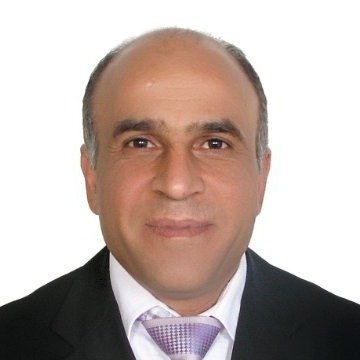Best Tax Increment Financing Lawyers in Syria
Share your needs with us, get contacted by law firms.
Free. Takes 2 min.
Or refine your search by selecting a city:
List of the best lawyers in Syria
About Tax Increment Financing Law in Syria
Tax Increment Financing (TIF) is a public financing method that is used for subsidizing redevelopment, infrastructure, and other community-improvement projects in Syria. It is a way to stimulate economic growth by investing in infrastructure that enables further development. In Syria, TIF is a relatively new concept, with legislation being tailored to support the country's redevelopment efforts post-conflict. The legal framework aims to provide municipalities with the tools needed to leverage private investment in revitalized areas.
Why You May Need a Lawyer
Engaging a lawyer knowledgeable in Tax Increment Financing can be beneficial for several reasons. Firstly, they can help navigate the complexities of TIF agreements, ensuring compliance with local legislation. Property owners and developers may need legal assistance to understand eligibility, negotiate terms with municipalities, and deal with financing challenges. Furthermore, a lawyer can provide indispensable advice if disputes arise concerning the appraisal of incremental tax revenues or the implementation of projects funded by TIF.
Local Laws Overview
The legal landscape for TIF in Syria includes several directives and regulations that govern its execution. Key aspects include the determination of eligible projects, the role of municipal authorities, procedures for issuing bonds, and compliance requirements. TIF districts are established by local governments, and the law stipulates how tax increments are to be calculated and utilized. It's essential to understand how property tax assessments are managed within these districts and how the funds are apportioned towards different infrastructure efforts.
Frequently Asked Questions
What is the main purpose of Tax Increment Financing in Syria?
TIF in Syria aims to encourage private sector investment in redevelopment projects, mainly focusing on infrastructure, which leads to economic revitalization and job creation in post-conflict settings.
Who can apply for TIF?
TIF is generally available to developers, property owners, and municipalities looking to fund qualifying public improvement projects. Specific eligibility criteria can be obtained from local government offices.
How are TIF districts established?
TIF districts are created by local governing bodies when an area is designated for revitalization. This involves assessment and approval processes to ensure the area's redevelopment needs align with strategic planning goals.
How does a TIF project affect property taxes?
Property taxes within a TIF district are typically frozen at the pre-development level. The incremental increase in tax revenues from rising property values is earmarked for reinvestment in the project area.
Can TIF be used for residential projects?
Yes, residential projects can be part of TIF initiatives, especially if they contribute towards economic diversity and address housing shortages as part of broader regeneration strategies.
What are the administrative requirements for TIF projects?
TIF projects require comprehensive planning and documentation, including economic impact studies, financial projections, and compliance reports, which must be submitted for approval to relevant authorities.
What happens if a TIF project is unsuccessful?
If a TIF project does not generate anticipated revenues, there might be financial risks, including bond repayment issues. These scenarios highlight the importance of risk assessment and legal advice.
Are there any incentives for developers using TIF?
TIF can provide several developer incentives, such as cost reduction on infrastructure, increased property values, and potential waiver of certain municipal fees to encourage investment.
How long does a TIF district last?
The duration of a TIF district in Syria varies but typically lasts until the debt incurred for improvements is paid off, often spanning between 15 to 25 years.
What role do local governments play in TIF?
Local governments are integral to TIF implementation, responsible for establishing TIF districts, approving projects, issuing the necessary financial instruments, and overseeing fund allocation.
Additional Resources
Those seeking more information or assistance with TIF in Syria may find the following resources useful:
- The Ministry of Local Administration and Environment
- Syrian Investment Agency
- Local Chambers of Commerce and Industry
- Legal firms specializing in Syrian municipal laws
Next Steps
If you require legal assistance with Tax Increment Financing in Syria, consider taking these steps:
- Conduct initial research to understand the basics of TIF and its relevance to your situation.
- Consult with a lawyer experienced in Syrian tax and finance law to evaluate your project or issue.
- Gather necessary documentation regarding your development project or property.
- Contact relevant local authorities to discuss TIF opportunities and requirements.
- Consider connecting with industry groups or professional networks for additional support and insights.
Lawzana helps you find the best lawyers and law firms in Syria through a curated and pre-screened list of qualified legal professionals. Our platform offers rankings and detailed profiles of attorneys and law firms, allowing you to compare based on practice areas, including Tax Increment Financing, experience, and client feedback.
Each profile includes a description of the firm's areas of practice, client reviews, team members and partners, year of establishment, spoken languages, office locations, contact information, social media presence, and any published articles or resources. Most firms on our platform speak English and are experienced in both local and international legal matters.
Get a quote from top-rated law firms in Syria — quickly, securely, and without unnecessary hassle.
Disclaimer:
The information provided on this page is for general informational purposes only and does not constitute legal advice. While we strive to ensure the accuracy and relevance of the content, legal information may change over time, and interpretations of the law can vary. You should always consult with a qualified legal professional for advice specific to your situation.
We disclaim all liability for actions taken or not taken based on the content of this page. If you believe any information is incorrect or outdated, please contact us, and we will review and update it where appropriate.
Browse tax increment financing law firms by city in Syria
Refine your search by selecting a city.








